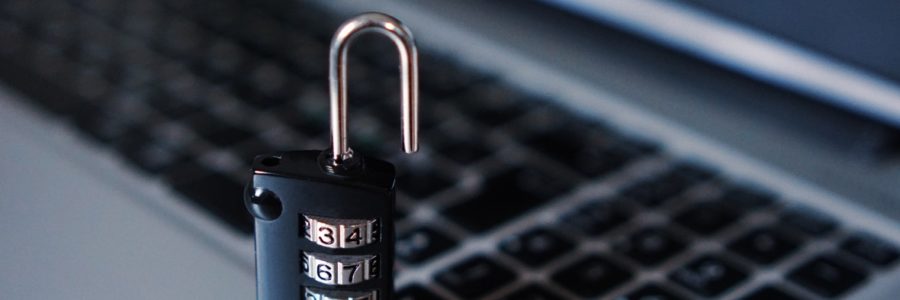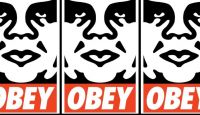The FBI investigates a grizzly murder. You are a bank president. The murderer stored his phone book in your bank’s safety deposit box, the code for which is encrypted with copyrighted proprietary software, before he committed the murder. The FBI demands that you provide it with the master code for the box, which can be used to unlock other boxes, too. You can give the FBI the code, but should you? Apple CEO Tim Cook is asking himself the same question, his answer is rightly “no.”
On February 14, 2016, United States Magistrate Judge Sheri Pym ordered Apple to provide the FBI the means to circumvent the iPhone 5c’s encryption technology. That way, the FBI can obtain Mr. Syed Rizwan Farook’s phone contacts to see who else, if anyone, conspired with him on the December 2, 2015 killings. So the FBI’s endgame is understandable, justified, and a matter of public safety. At the same time, Judge Pym’s February order is constitutionally questionable, for these reasons.
First, there are less invasive and more reasonable means of obtaining the evidence. While the February order is ostensibly based on the “All Writs Act,” it was issued to give effect to a warrant directing Apple to give the FBI “reasonable technical assistance.” If the February order permits the FBI to unreasonably search and seize Apple’s property, it is constitutionally defective under the Fourth Amendment. Whether the ordered search is unreasonable depends on if there are other less invasive means of gathering the evidence.
Here, there are at least three other less invasive methods. First – the FBI could back its way into Mr. Farook’s contact list by getting from Verizon, his cell phone carrier, phone calls, texts, or e-mails to or from his phone. Second — Apple can provide the FBI the desired information from the Mr. Farook’s iPhone. This would be akin to you, as the bank president, copying the murderer’s phone book and providing copies to the FBI. Third – have the court review Mr. Farook’s phone information in camera, that is behind closed doors, and cross-reference that information with the phone records around the time of the killings to determine relevance. Once that is done, some or all of the phone’s information can be produced to the FBI.
Second, there is a strong presumption in federal copyright law against allowing circumvention of encrypted copyrighted software. The Digital Millennium Copyright Act (“DMCA”) forbids devices from being made, imported, or marketed to the public which are primarily designed to circumvent technology that controls access to copyrighted content, such as Apple’s software. Because Apple manufactures the phone, and owns the copyrights to the software located within, Apple is free to circumvent it’s own technology under the DMCA. But Apple shouldn’t be forced to so by the FBI. That’s because the DMCA shows how important copyright encryption is to content creators like Apple, to Congress, and the consuming public. As a result, Apple’s interest in protecting the integrity of its iPhone 5c — and potentially other generations of iPhone – isn’t mere “marketing strategy,” as stated by the FBI.
Third, there is no telling how far the government will go if the February order stands without being overturned. According to Apple, the FBI has sought to access to 11 other iPhones since September, and states attorney generals are biting at the bit to do the same. Given this rising tide, the elephant in the room is a lack of trust in what the government will do with the new path it is foraging. While some 51% of Americans apparently side with the FBI on the unlocking of Mr. Farook’s iPhone 5c, American trust in the federal government in general is at an historical low of 19%, according to NPR.
Seen more broadly, the magistrate judge’s February order can be the first rock in an Orwellian rockslide where the government requires all phone makers to make such backdoors to the encrypted software as a matter of policy. The unstated and yet real concern with such a domino effect is that executive agencies will not only use this information for criminal investigation purposes, but to violate the Constitutional and privacy rights of Americans. These concerns aren’t academic. Nor are they paranoid. President Richard Nixon used the Internal Revenue Service go after American citizens he deemed to be his enemies, which led to his articles of impeachment. There is no telling what another Nixon would do with such unfettered power. Thus, Mr. Cook’s concern about the magistrate’s order setting “dangerous precedent” should not be taken lightly.
In the end, it is a shame that Apple and the FBI didn’t partner up outside of court to craft a mutually beneficial solution that would maintain the integrity of Apple’s iPhone 5c and also give FBI the evidence it needs. But amicable solutions like this won’t happen as long as executive agencies like the FBI downplay legitimate concerns of corporate citizens like Apple as “marketing strategy,” and then pursue heavy-handed discovery tactics not because they should and need to – but because they can. It is up the judiciary to stop them by ensuring that the government’s right to know is balanced against citizens’ legitimate intellectual property and Constitutional rights. In the meantime, just because Apple can obey the likely unconstitutional February order doesn’t mean it should. Instead, Apple should get a higher court to overturn and limit it.



